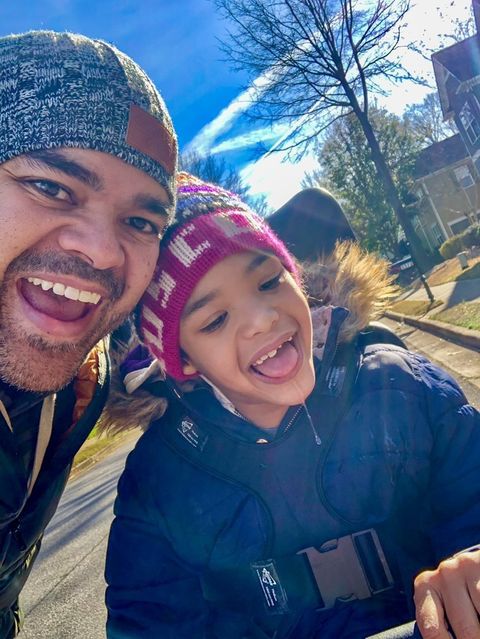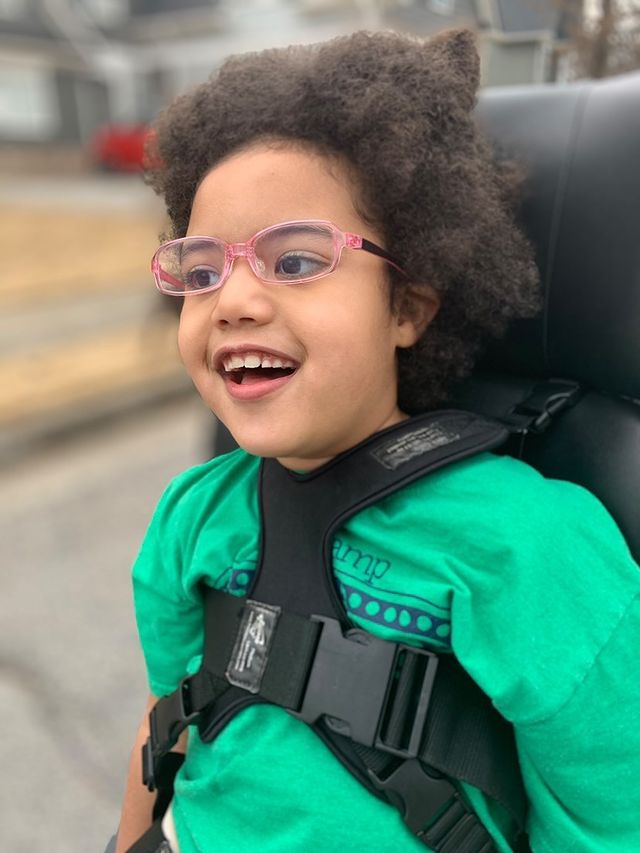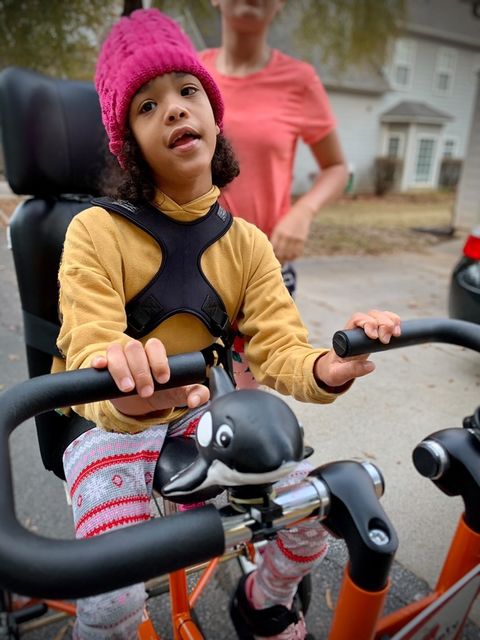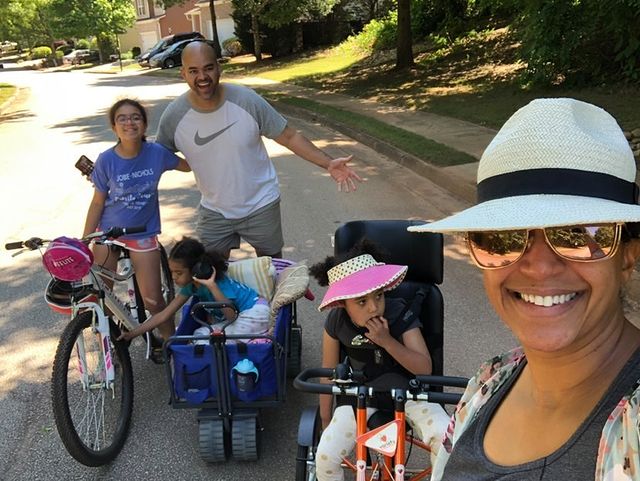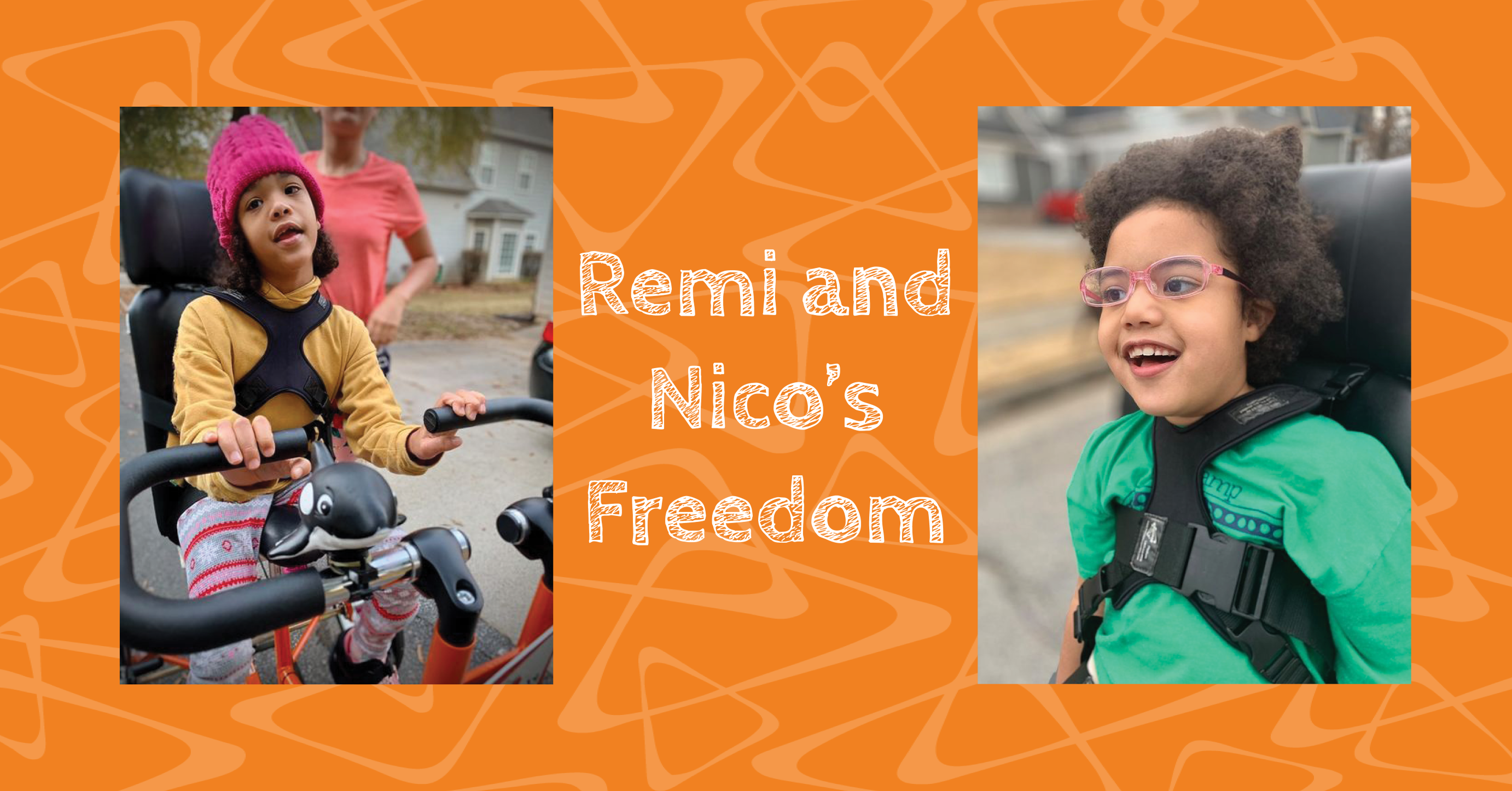When asked about his daughters’ personalities, Patrick Powell describes Remi, 9, and Nico, 7, as fire and ice.
“Remi has a real fiery personality,” Patrick said. “If she wants something, she’s going to be very vocal. If something’s wrong, she’s going to tell you.”
Patrick said she’s also very loving.
“She still expects me to carry her around, even at nine years old. She lays on me and wants to cuddle and she can be the most loving kid ever,” Patrick said. “She’s such a sweetheart.”
Nico, on the other hand, is more laid-back. Patrick said if he sits her on the couch, gives her some water, and turns on some music, she’ll sit there for hours.
“Something’s got to be going catastrophically wrong for her to get upset,” Patrick said. “She’s just so chill.”
Nico also has a bubbly personality.
“Sometimes there’ll be days where she wakes up in the morning laughing and she’ll laugh for the next four or five hours,” Patrick said.
Remi and Nico both have ATAD3A, a rare mitochondrial disorder where their bodies don’t use mitochondria efficiently. Mitochondria create power the body’s cells need to function properly.
“These mitochondria cells are supposed to communicate with the other neurological spaces in their bodies, and there’s just a missing connection,” Patrick explained. “I used to tell my wife, ‘I feel like their plugs are half in the socket. I feel like they’re not quite getting what they need and their bodies are just not able to find themselves.’”
Remi and Nico both suffer from hypotonia, which is also known as floppy baby syndrome. As a result, they have decreased muscle tone, which doesn’t allow them to walk. They are also nonverbal, but can make sounds and noises.
“Remi crawls around, she can pull herself up on things and she can move her body to a certain degree,” Patrick said. “And if she wants to grab something, or pick something up, she can.”
The disorder is so rare, that when Remi was diagnosed with ATAD3A, she was only the 10th reported case in the world.
Remi and Nico were diagnosed about six years ago after a genetic test on flies was done at Baylor Medical College. Through sequencing the fly DNA, the physicians were able to determine what the disorder was, as well as the symptoms. Although Patrick and his wife Tiffany happen to be carriers, their oldest daughter doesn’t have the condition, which is rare.
The Powells received their Freedom Concepts DCP adaptive bike a year and a half ago when their friend’s non-profit was giving adaptive bikes to families with children with special needs. The Powells submitted their story and were selected.
Remi and Nico quickly fell in love with the bike.
“Nico was really into it, and it got to the point where I was taking Remi out every single day for an hour, an hour and a half,” Patrick said. “Now we can all enjoy each other together as a family and we’re able to enjoy being outside.”
Patrick becomes emotional when he sees Remi and Nico riding the bike.
“As a dad, I used to walk outside in the morning and check the mail and I would see kids that don’t have to battle these types of conditions running around. It would crush me,” Patrick said. “I’d have to get myself together, hit the reset button, and say ‘That’s great for them, we’ve got to find a way to help our kids experience this type of independence.’ So when I see them on that bike, it just overcomes me.”
The adaptive bike is one of the few ways Remi and Nico can get the exercise they need outside of their therapy sessions, and Patrick is grateful for the time he gets to spend with them while they’re on it.
“I see how much they enjoy it, and it means more for them,” Patrick said. “It’s one of the only ways they have to move around and get the exercise they need. Plus, it’s time for me to spend with them.”
Patrick said the adaptive bike has helped Remi and Nico get their energy out and work muscles that don’t usually get worked a lot.
Remi has even started pedaling independently, which wasn’t the case when she first started riding.
“It’s just been fantastic, it’s making her stronger, you can tell,” Patrick said. “Plus from a mental health standpoint, it’s absolutely therapeutic for them to get out of the house and get that vitamin D.”
Click here to learn more about Freedom Concepts adaptive bikes.

